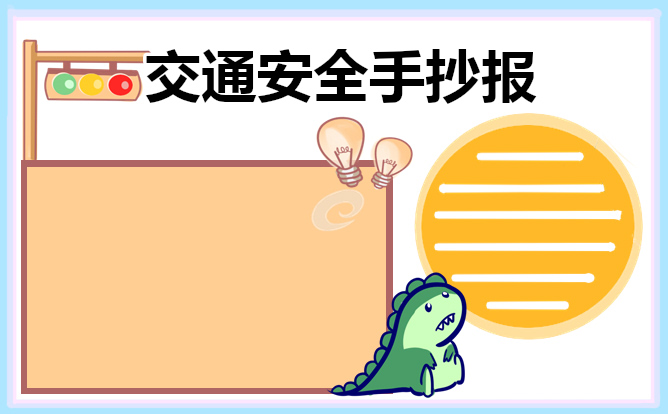八上英语第一单元知识点
八上英语第一单元知识点梳理
学习英语,语感是非常重要的,因为它决定着你说出的语言是否纯正地道。语感,即语言感受力。除此之外,知识点的学习也是十分重要!以下是小编为大家带来的八上英语第一单元知识点梳理,欢迎参阅呀!

八上英语第一单元知识点梳理
一、短语
1、如有always ,often, usually, sometimes, seldom, never, once a....,every...用一般现在时,第一、二人称复数后跟动词原形,第三人称单数后跟动词加's'/'es'。
2、如有now ,look! ,listen, at the moment ....用现在进行时,结构是be (am, is, are) +v-ing
3、如有tomorrow, the day after tomorrow, from now on, in +一段时间, some day, next....用一般将来时,结构:will + v原 \ be going to +v原(没有动词用be )
4、如有yesterday, ......ago , last....just now.....用一般过去时动词加ed
give sb. Sth.=give sth. to sb. 给某人某物 every day每天,
write down 写下,记下write it (them) down everyday每天的,日常的,
how about doing sth.=what about doing sth.做....怎么样 each other 互相.
thanks a lot= thank you very much非常谢谢
回答That's all right. =You're welcome.= That'OK.= It's my pleasure.=Not at all.Why don't you+V原...=why not+...V原 为什么不
help sb. with sth. 在某方面帮助别人 help sb. (to )do sth.帮助某人做某事
with one's help=with the help of sb.在某人的帮助help oneself to sth.请自用食物
watch sb. do sth. 看到某人做了某事,(现在没有做,做过)
watch sb. doing sth.看到某人正在做某事(正在做)see, hear类似
remember to do sth.想起记得要做某事,未做事 remember doing sth.相起记得做过某事
forget to do sth. 忘记要做某事 forget doing sth.忘记做过某事
welcome back欢迎回来 , new term新学期
this term这学期 , next term 下学学期,
last term上学期, give you some advice给你一些建议,
why not 为什么不, make a mistake=make mistakes犯错误,
correct spelling正确的拼写, what else?=what other things? 还有什么
a piece of advice 一条建议, follow /take one's advice采用别人的建议,
send sth to sb.=send sb. sth. 寄给某人 send for派人去请/取
send up发射. all the time一直
enjoy oneself=have a good time=have a great time=have fun, 玩得愉快
lots of =a lot of =many(可数)\much(不可数)许多 , ,
spend : sb. spend some time on sth.某人花费时间做某事
sb. spend some time (in) doing sth. 某人花费时间做某事
Sb. spend some money on sth. 某人花费钱买某物
Sb. spend some money (in) buying sth.某人花费钱买某物
Cost: sth. cost sb. some money 某物花去某人钱
pay: sb. pay some money for sth. 某人支付钱
Take: It takes (took) sb.some time to do sth.做某事花去某人时间
ask for 请求,要求, ask sb. for sth.向某人要某物
ask sb. to do sth.要求某人做某事 a piece of一块
enjoy doing sth喜欢做某事.finish,practise, mind, miss ,consider,keep, continue,这些词语后跟动名词形式V-ing
place sth.in =put sth. in 把某物放在…里面
else常修饰不定代词,关系代词或副词,也可修饰all, much,little等,else要位于其后。所有格为else's.
take a deep breath深呼吸, catch\hold one's breath屏住呼吸,
out of breath上气不接下气, wish sb. to do sth.希望某人做某事,
the number of …的数目,后跟名词复数,动词用三单, a number of =many,大量,许多后跟名词复数,动词用复数形式。a large number of, a small number of ,
invite sb.to do sth. 邀请某人做某事 find+ it+ adj+to do sth.发现做某事怎么样
try to do sth.尽力做事 try doing sth. 尝试做某事 try not to do sth .尽力不做某事 try one's best尽某人大的努力,
a group of 一组,一群, borrow sth from sb.从某人处借入某物,
lend sth.to sb=lend sb.sth.借给某人某物 keep借一段时间
practice doing sth.,练习做做某事 come from=be from来自,
look for 寻找, look after=care for=take care of照顾
look up 向上看,查阅, look like看起来像,
look at 看着, look on sb. as把某人看作,
look forward to doing sth. 盼望,期待做某事 look over检查,翻阅 ,
look out当心,向外看 , look through仔细查看,
be ready for =get ready for=prepare for为…, be ready准备好 ,
be (get ) ready to do sth.准备做某事,乐意做某事 translate…into… 将…译成…,
take a message捎个信, leave a message留个信,
be good for 对…有好处, be good at =do well in擅长于…
be poor at =be bad at =do badly in=be weak in不擅长… Think of 想起,
think about想出, think over仔细考虑,
else修饰不定代词something,everything,anything,nothing,somebody,anybody,
nobody和who, what,when,where时放后,
四说,1,speak说语言,2.say说内容,3,talk与谁说,4,tell告诉,讲述,
四看,1,watch观看电视,比赛和表演,2,see看人,电影,医生,风景,
3,read看书,报,4,look就看。 看场电影要用see,读书看报用read 电视、戏剧、比赛,凡是表演用watch,observe细观察,一时注意用notice.
make+宾语+补足语(形容词)使某人某物怎么样。
.make+宾语+do 让某人做某事
make+宾语+过去分词 使某人被怎么样;make friends with sb.与某人交朋友,
hear of听说, hear from收到某人的来信,
be bad for对…有害, it is +adj.+of sb +to do sth.写性格,品质 kind, good
nice ,right,wrong,clever,careless,polite,foolish等。
It is+adj+for sb +to do sth. 对物的评价difficult,easy hard,dangerous,important,等
write to… 给…写信, next to 在…旁边,
do some concerts办音乐会, speak to sb.和某人讲话,
say hello to sb. 给某人问好, say bye to sb.向某人说再见,
show sb. around somewhere带某人参观某地, learn sth from sb.向某人学习
choose the correct answers选择正确答案, correct the mistakes改错,
match …with…把…和…搭配起来
建议:1.why don't you do sth?=why not do sth?
2.How about doing sth?=what about doing sth?
3.You should /can do sth. 4.Remember to do sth.
5.Don't forget to do sth. 6.can you do sth ?
7.Let's do sth. 8.It'sa good idea to do
9.would you like to do ? 10.Shall we do
11.You'd better (not )do sth.
回答:That's a good idea.Thanks a lot.
Great, OK. That's right. All right. Good idea. Sure. 二、句型
1. 疑问词 how 的用法
(1) 怎样,用什么手段,方法/交通工具
How are you? / How is she?
How did he do it? / I don't know how to swim.
How do you come to school?
(2) 情况如何(指身体健康状况) How are you?
(3) how many,how much 表示"多少"其中how much 还可以表示钱数。
how many 后接可数名词复数,how much 接不可数名词。
How many times do you go to the park?
How many pens do you want?
How much water do we drink every day?
How much are those pants?
(4) how often 是对动作发生的“次数”提问,询问的是频率“多久一次”
回答可以是:Every day. / Once a week. / Three times a week. / Often. / …
How often do you play tennis?
How often do you surf the Internet?
(5) How old …? 询问年龄 How old are you? I am five.
(6) How about …? ……如何?……怎么样? How about going to the movies?
2. time 表示不可数名词,意为“时间”。
表示可数名词,意为“次数,倍数”
What time is it?
I go to the movies three times a week.
注意“次数”的表达方法
一次 once,两次 twice,三次或三次以上用基数词加上 times:
three times, five times, one hundred times
表示“……几次”的表达方法是:
once a day/ a week/ a month/ a year
twice a day/ a week/ a month/ a year
2. exercise v./ n. shop v./ n.
He often exercises on weekends.
We often do / take exercise on weekends.
We often shop on weekends.
There are many shops in the neighborhood.
4. as for 意为“就……而论;至于”
As for fruit,I eat it sometimes.
As for him,I never want to see him here.
至于他,我永远不希望在这里见到。
5. My mother wants me to drink it.
我妈妈想要我喝。
want to do sth. 想要做某事
want sb. to do sth. 想要某人干某事
Do you want to go to the movies with me?
你想和我一起去看电影吗?
I want you to help me with my math.
我想要你帮我学数学。
有很多动词后面用这种结构做动词的复合宾语:
ask sb. to do sth. 叫某人做某事
tell sb. to do sth. 告诉某人去做某事
help sb. (to) do sth. 帮助某人做某事
6. She says it's good for my health.
她说它对我的健康有意。
be good for … 表示“对……有益(有好处)”
其反义为:be bad for … 对……有害/无益
It's good for us to do more reading.
多读书对我们有好处。
Drinking milk is good for your health.
喝牛奶对你的健康有益。
Reading English is good for studying English.
对英语对学习英语有益/有帮助。
Reading in bed is bad for your eyes.
在床上读书对你的眼睛有害。
7. usually when I come home from school
通常是在我从学校回家时
When + 从句 当……时候
I often stay at home when it is rainy.
8. I try to eat a lot of vegetables. try to do sth. 尽量/尽力做某事
I'll try to learn English well. 我会尽量尝试学好英语的。
You must try to take more exercise. 你必须尽量多做运动。
9. I look after my health. look after 照顾
My brother is ill. I have to look after him today.
我的弟弟病了。我今天不得不照顾他。
All the students must look after the desks and chairs.
有的学生必须照看好课桌椅。
He often helps his mother look after his little sister.
他经常帮助他的妈妈照顾他的小弟弟。
10. My healthy lifestyle helps me get good grades.
我健康的生活方式帮助我取得好的成绩。
help sb.(to) do sth. 帮助某人做某事
She often helps me learn math. 她经常帮助我学数学。
11. Good food and exercise help me to study better.
好的食物和运动帮助我学习得更好。
help sb. (to) do sth. 帮助某人做某事
12. Is her lifestyle the same as yours or different?
= Is her lifestyle the same as your lifestyle or is her lifestyle different from your lifestyle?
她的生活方式和你的一样或是不同?
be the same as … / be different from … 与……一样/与……不同
She looks the same as her sister. 她看起来跟她的妹妹很像。
This book is different from that one. 这本书跟那本书不一样。 13. I think I'm kind of unhealthy. 我想我有点不健康。
kind of = a little a kind of 一种
14. maybe (adv.) = perhaps 也许,可能 Maybe he knows the answer.
Maybe they'll go skateboarding. He may know the answer.
15. although = though 虽然 Although he's ill, he goes to school on time.
虽然他生病了,但他还是准时上学。
She eats a lot of chocolate, although she is very fat.
虽然她很胖,但她却吃许多的巧克力。
16. A lot of vegetables help you to keep in good health.
A lot of = lots of = many/ much 许多
keep in good health = keep healthy = stay healthy
keep + 形容词 表保持某种状态
Keep quiet! The baby is sleeping.
那婴儿正在睡觉,保持安静!
We must keep our classroom clean.
我们必须保持我们的教室干净。
关于英语作文如何拿高分
1、书写工整清晰
书写真的很重要,阅卷老师批改一天了心情一定不算好,你字再写的歪歪扭扭的话就悲剧了.....所以,作文最基本的是书写工整,段落也要清晰地分开。
2、同义句转化很重要
常用的意思,一定要有不同英文表达的准备(同意转换),比如“在我看来”,就可以是in my opinion, from my standpoint, from my point of view.......表转折的,表递进的,都要准备多种不同的表达方法。一段文字要是出现两个what's more什么的一般就给不了人好感了。
3、复杂句的使用
不要每一句都是以i或者my开头, 这样分肯定不高,不妨用一些从句,adj+n,就可以表示成n which/who is.....,这要求语法能灵活运用,所以好好看语法书吧。
4、常看范文
平时倒不用每天写作文,但建议每天看1-2篇范文,想想它们为什么是范文,把好词好句摘下来(特别注重好的句子结构)。多读读英语范文,当是培养语感也不错。
最佳英语学习方法有哪些
1、树立学习英语的信心
自信是成功的第一步。自信心对于英语学习尤为重要,因为小学的英语侧重于听说,说占有很大的比例。平时的跟读、回答问题、唱歌、游戏、对话、表演都要用到“说”。假如怕出错误,不敢开口说,那么他的英语就无从得到练习,也便不会有进步,而且会越学越没劲。所以树立良好的自信,说英语,用英语,不怕犯错误,是学好英语的第一步。
2、养成良好的英语课堂习惯
英语课堂是学生学习英语的主要阵地。在课堂上参与得越多,那么便学得越多。良好的课堂习惯是保持较高参与度的前提。良好的课堂习惯包括:集中注意力听讲,积极参与各种课堂活动(游戏、对话、唱歌、调查、表演、跳舞等),大胆开口说英语,不取笑其他同学的错误,服从老师的指挥,书写工整,善于作笔记(这一条适合于高年级学生)。
3、根据自己需要进行预习,及时复习
英语的学习也需要在不断的预习、学习、复习中对已知知识进行重复和巩固,以形成良好认知结构。
4、每天自觉地听录音、朗读、背诵、记忆
学英语贵在坚持,英语朗读久了,熟能生巧,在一定情况下便能脱口而出。所以一定要每天坚持听英语,读英语。
5、要开动脑筋积极思考,要认真抓住两个环节:一是专心听讲,不要"走神"。要做到这一点,首先要有正确的学习动机,有强烈的学习渴望,才能专心听讲;其次,要充分认识到老师的重大作用,才能虚心去听;二是要努力克服“走神”现象,“走神”破坏了上课听讲的连续性,是很多学生学不好的重要原因。
6、要重理解。上课时,要努力争取当堂理解所学的新知识,要通过提高课堂的学习效率来减轻课外的学习负担,这是一条重要的学习经验。
关于英语不好怎么办
一、初中英语要学好,单词记忆是关键
英语的学习历来都是把单词看作是重点的。如果将英语比作为一座摩天大楼的话,那么同学们所学习的单词就是建筑这座大楼所需要的砖瓦,如果没有砖瓦这些基础的话,同学们是怎样才能够建筑出一栋大楼呢。所以同学们一定要能够拥有足够多的“建筑材料”。单词是基础,所以同学们要多学习,多记忆,多背诵单词。
二、初中英语的学习,语法基础要打好
初中英语是为同学们以后英语的学习打基础的,上面已经提到了,单词是作为最为基础的存在。而语法同样也是初中英语之中的基础。初中英语的语法学好了,同学们日后英语的学习就会十分轻松。
三、英语学习需要练习
学习英语有一种非常简单的方式,就是背诵课文,因为现在教材之中的文章都是老师们精挑细选出来的,对于同学们来说还是非常有益的,所以同学们一定要能够仔细的阅读,做好这个阅读的工作,有一句话是“书读百遍,其义自现。”而英语之中同样是这个道理,同学们背诵的多了,知道的多了,在写作的时候也就能够信手拈来,妙笔生花。
学好英语的四个环节是什么
1、自觉预习。课前要预习生词、课文和语法内容,在自己不懂的地方作上标记,带着问题有针对性去听课,课堂上尽力去解决自己不懂的问题,如仍不懂,课后应马上问老师。
2、认真听课。听课效率高的学生往往能够在课堂上掌握教师讲授的大部分内容。尽量做到紧跟各个教学环节,如复习、引入、呈现、练习和巩固等;要集中精力,听懂教师的讲解,并做好笔记。
3、完成作业。对语言学习来说,朗读、记忆、背诵等课后作业十分关键。
4、总结复习。通过归纳、分析和比较,使知识条理化;根据个人情况有针对性地进行复习。对于重点词汇或易混词要勤查词典,学会用简单的英语去解释生词,自己试着分析结构比较复杂的长句子,如能理解长、难句,那么也就不难理解整篇文章了,这样也随之提高了阅读能力。





